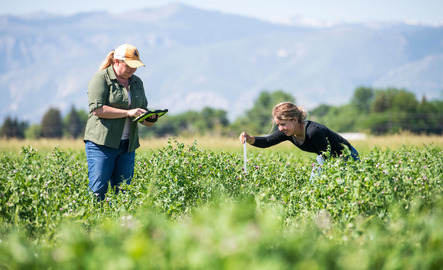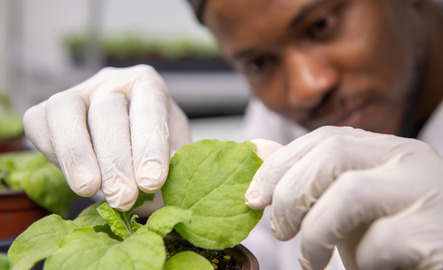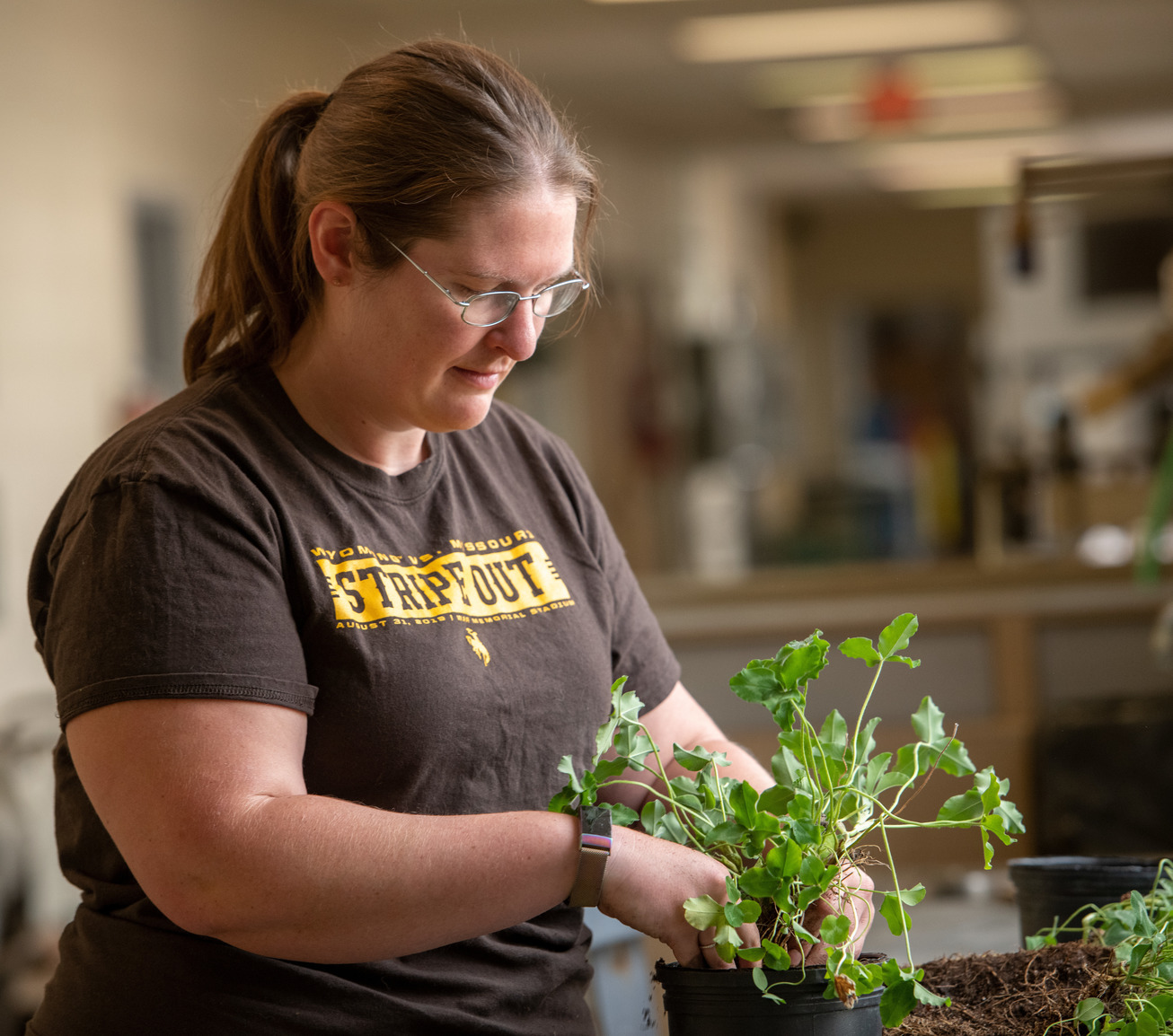About the Agronomy Minor
The agronomy minor consists of at least 19 credit hours of interesting courses that
prepare students for a wide variety of careers in plant production and natural resource
management. All students take three required foundational courses and then choose
their remaining credits from approved electives. Course topics include field crop
production, plant breeding, organic food production, forage crop science, sustainable
agriculture and many more!
The minor in agronomy is NOT for plant production and protection majors.

If you're interested in majoring in agronomy, our Bachelor of Science in Plant Production and Protection has an agronomy concentration you can pursue!
UW's Department of Plant Sciences offers a wide variety of programs for students interested in plants and agriculture.
Available programs include a Bachelor of Science in Plant Production and Protection as well as four minors. If you pursue the Bachelor of Science in Plant Production
and Protection, you may choose a concentration in agronomy, horticulture, integrated
pest management or agroecology and evolution. However, you can pursue one of our four
plant science minors if you major in another department.
Minors
- Agronomy
- Agroecology
- Horticulture
- Plant Protection

What can you do with an agronomy minor?
Agronomy graduates are equipped for a variety of careers in crop production and management, consulting, sales and other areas of modern agriculture. Many of our recent graduates have applied their education locally! The agronomy program has produced many graduates over the last several years who serve crop production regions in Wyoming and neighboring states.
Here is just a small sampling of jobs and careers in agronomy:
- Natural resource management
- Sales agronomy
- Landscaping
- Turf management
- Agronomist
- Soil conservationist
Agronomists work in a wide variety of settings, depending on their specialty and career goals. Here are some of the main places agronomists typically work:
- Agricultural companies
- Research institutions and universities
- Government agencies
- Cooperative extensions
- Nonprofits and NGOs
- Private farms and agribusiness operations
- Seed, fertilizer, and chemical companies
- Environmental consulting firms
Not exactly. Agronomy is a specialized branch within agriculture that focuses specifically on crop production and soil management. Agronomists study how plants grow, how to improve soil health, how to use resources efficiently and how to sustainably manage fields and croplands. Their work is very science and research-based, with an emphasis on things like soil chemistry, plant genetics, water use, pest management and sustainability.
Wyoming’s diverse environment, including high plains, rolling grasslands and mountainous regions, makes it an ideal place to study agronomy. Students can explore how factors like altitude, soil types, water availability and weather extremes impact crop production and soil health. The state’s unique landscapes offer valuable hands-on learning opportunities in sustainable farming practices, soil management and crop resilience. Studying agronomy in Wyoming means gaining real-world experience adapting agricultural techniques to a range of challenging and dynamic ecosystems, preparing students to manage agricultural systems in varied environments across the globe.
"The faculty and advisors in the department truly make an effort to know you, and if you're willing to accept the opportunities given, then you have the chance to really make an impact and open doors for your future."
- Tess Kurka Donnelly | B.S. in Plant Production and Protection '24


